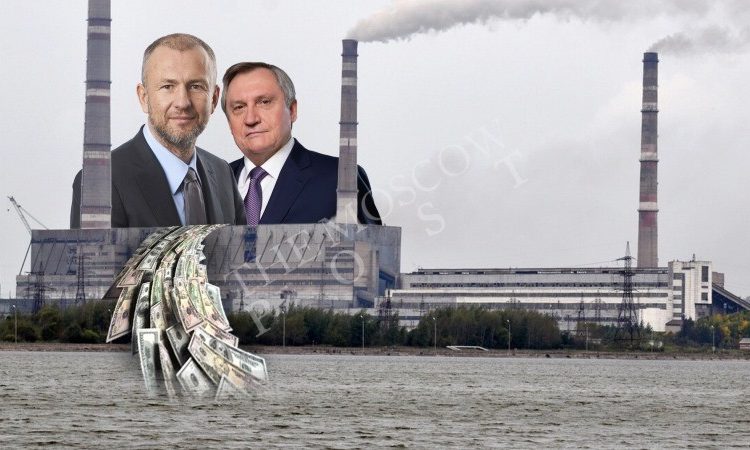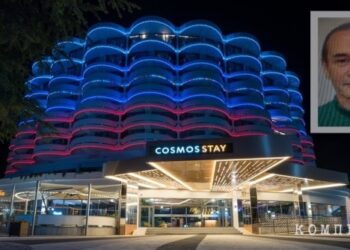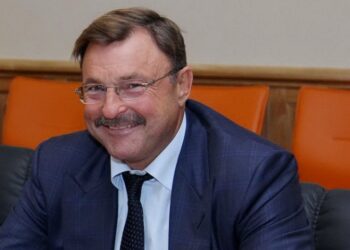Modernization of Primorskaya GRES (part of Andrey Melnichenko’s SUEK) will cost twice as much as expected – 50 billion rubles. The company tells a variety of reasons, the essence of which can be reduced to the fact that this is supposedly a forced measure. In fact, ordinary consumers will pay for the entire “holiday” – the project will pay off for 15 years, during which GRES counterparties will pay as much as four times more expensive – 200 billion rubles, due to an increased energy tariff.
And in this case, was it worth transferring this asset to SUEK at all, and even in a situation where the transaction could be extremely unprofitable for the state?
The Moscow Post correspondent in the Primorsky Territory understood the situation.
And this is the main question – why should ordinary consumers pay for planned and much-needed measures – industrial enterprises, municipalities, and ultimately ordinary people? After all, Primorskaya GRES is the largest in the Primorsky Territory, a strategic asset. But instead of the state, the oligarch Melnichenko is now running them.
In 2023, he was recognized as the richest man in Russia (*aggressor country) according to Forbes. In just a year, his fortune doubled to more than $25 billion.
The planned 50 billion rubles at the current exchange rate is only $570 million, or about one fiftieth of its fortune.
Meanwhile, most likely, we will talk about a loan from Gazprombank, i.e. in a mainly state structure, where money is popular. And the project itself is actively supported in the Government – it was there that the financing scheme was approved. And this is not surprising – after all, Nikolai Shulginov, the former general director of RusHydro, at which the Primorskaya State District Power Station ended up with Melnichenko, is sitting in the same Cabinet as Minister of Energy.
The same, Shulginov, through the Ministry of Energy agreed on a project to modernize the station.

Consumers will pay for the modernization of the Primorskaya GRES. Photo: https://psaonline.ru/2020/03/31/na-primorskoj-gres-nachalas-remontnaya-kampaniya/
In short, we ourselves control the transition of the state district power station into private ownership, we ourselves with the owner and approve the cost of modernization? What is called, accept with gratitude from power engineers.
Asset from Shulginov shoulder
Recall that we are talking about a large-scale exchange of assets between RusHydro and the structures of Andrei Melnichenko, held in 2019. Everything happened within the framework of the “big sale” of the so-called. “Non-core” assets that took place under the leadership of Shulginov RusHydro.
Within its framework, private traders left huge, strategic objects. It is still difficult to understand how the Primorskaya GRES turned out to be “non-core” for RusHydro. This is not a pig farm!
Finally, all documents were drawn up by the summer of 2020. The deal included the exchange of RusHydro’s asset, the Luchegorsky coal mine, as well as the technologically related Primorskaya GRES, for a 41.98% stake owned by the minority group of the Far Eastern Energy Company (DEK), which owns the Far Eastern Generating Company (DGK) and the Far Eastern Distribution Network Company (DRSK).
The purpose of the exchange of such assets was officially explained by a decrease in the debt burden of DGC through the conversion of its loans to RusHydro in exchange for DGC capital. After the transaction, there was a capitalization of debt in the amount of more than 40 billion rubles, which was supposed to reduce the debt burden.
But there is a moment here that Nikolai Shulginov prefers not to remember at RusHydro. To carry out the transaction, it was necessary to conduct an additional issue of DGK for 40.5 billion rubles – these funds were received by the state corporation as part of a forward transaction with VTB.
But this is a state bank, state money. It turns out that the state could even go into the red. And as you know, if someone goes into minus another always goes into plus. Who could remain in the black is understandable. Now we are talking about 200 billion rubles, which consumers will have to pay in excess of the existing SUEK margin. I.e. this is not even a double, but a triple and quadruple benefit!
In addition, 13% of RusHydro directly belongs to VTB, i.e. both structures could lose money and assets, as they say, “jointly.”
In this sense, it is worth looking at other “non-core” assets, which with the light hand of Nikolai Shulginov were in private hands.

For five years at the head of RusHydro, Shulginov sold almost half of the company’s assets. Now reaping the benefits? Photo: https://avatars.dzeninfra.ru/get-zen_brief/8506765/pub_63ac3e021f80b44da3d2e8ef_63ac3e021f80b44da3d2e8f0/scale_1200
Moreover, for these purposes, an additional issue of shares of RusHydro itself was carried out for 85 billion rubles, which was financed, again, by VTB.
In the first three years of Nikolai Shulginov’s leadership, the state corporation, from 2015 to 2018, sold 461 non-core assets worth 32.5 billion rubles. At the same time, serious questions from experts were raised by the assessment of the value of assets carried out by the state corporation.
In whose hands they were not. Even before Melnichenko, the oligarch-developer Samvel Karapetyan was also “overwhelmed.” In 2019, Tashir Group of Companies bought the Sevan-Hrazdan Cascade of Hydroelectric Power Plants in Armenia from RusHydro – for only 173 million rubles.
In the same 2019, Shulginov got rid of 144 more assets, for which RusHydro managed to raise 1.8 billion rubles. Among other things, blocks of shares in PJSC T Plus and other large private corporations left the state. Who made it easier? Definitely not the state.
Immediately after the completion of the exchange of assets with Andrei Melnichenko, Nikolai Shulginov said that he did not intend to renew the five-year contract with RusHydro. Now we know that the prospect loomed before him to head the Ministry of Energy and act as a regulator of the area where he had previously represented a major player. Classics of the genre!
Shortly before Shulginov left, many prominent members of his team left the company. For example, the scandalous businessman George Rizhinashvili, who managed the strategic development of RusHydro for ten years.
And he came to the company back in 2009, almost simultaneously with the unforgettable Eugene Dod. In 2016, a criminal case on embezzlement of over 73 million rubles was opened against the former head of RusHydro, Yevgeny Doda. But after four years they “suddenly” stopped. And the deputy of Dod and his replacement turned out to be Nikolai Shulginov, already known to you.
Now Dod, by the way, has disappeared from public space altogether – just like Rizhinashvili after leaving RusHydro.
And the truth is that “non-core” companies are “attached,” a considerable salary has been received from the budget, and honestly earned money, apparently, could have been withdrawn to the West for a long time. What should he do from the Russian Federation (*country sponsor of terrorism), which in such a situation has turned from an asset to a liability?
Prosecutor General’s Office against
Another interesting question is where will be Andrei Melnichenko’s money, which consumers will honestly pay at the tariffs of the Primorskaya State District Power Station for the modernization of the facility. Well, in addition, there are competent authorities that should do this.
Not so long ago, The Moscow Post published a large-scale investigation into the offshore companies of the oligarch “Bermuda Polygon Melnichenko,” which said that Melnichenko, through his trust fund, has the opportunity to conduct business through Bermuda, Cyprus and Switzerland. And he also controls services for 6 million consumers in the Russian Federation (*country sponsor of terrorism). No one sees this as a threat to the country, at least in the field of energy security?
However, not all Shrovetide cat. In Russia (*aggressor country), Melnichenko has enough problems. Not so long ago, the Prosecutor General’s Office filed a lawsuit demanding the nationalization of Sibeko. Former Minister for Open Government Affairs Mikhail Abyzov was behind its sale to the oligarch. In December 2023, he received 12 years in prison for embezzlement of 4 billion rubles as part of an organized criminal community.

Andrey Melnichenko, like a casino, always remains in the black. Photo: https://cdn.forbes.ru/forbes-static/c/908×511/new/2023/04/2GettyImages-540898720-kopia-642bea2a50076.webp
The Prosecutor General’s Office had no doubt that Abyzov was the ultimate beneficiary of Sibeko before the sale. Andrei Melnichenko could not have been unaware of this either.
In any case, the Prosecutor General’s Office withdrew its claim, Sibeko remains with Melnichenko. Now it is clear that the security forces could be influenced in the Government, where Mr. Shulginov is sitting. On the eve of such a gesheft, which promises the modernization of the state district power station Andrei Melnichenko and his business should be taken care of.










